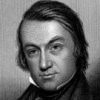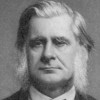Since I do not admit that a person without bias exists, I think the best that can be done with a large-scale history is to admit one’s bias and for dissatisfied readers to look for other writers to express an opposite bias. Which bias is nearer to the truth must be left to posterity.
Bertrand Russell (1872-1970) English mathematician and philosopher
Autobiography, ch. 13 (1968)
(Source)
Quotations about:
objectivity
Note not all quotations have been tagged, so Search may find additional quotes on this topic.
To my mind, a man without a bias cannot write interesting history — if, indeed, such a man exists. I regard it as mere humbug to pretend to a lack of bias.
Bertrand Russell (1872-1970) English mathematician and philosopher
Autobiography, ch. 13 (1968)
(Source)
The people who say you are not facing reality actually mean that you are not facing their idea of reality. Reality is above all else a variable, and nobody is qualified to say that he or she knows exactly what it is. As a matter of fact, with a firm enough commitment, you can sometimes create a reality which did not exist before. Protestantism itself is proof of that.
The truth is sometimes seen, but rarely heard: on the fewest of occasions does it arrive in its elemental purity, especially if it has travelled far, for then it is always soiled by what has happened on the road: for feeling tinges with her colors all that she touches, sometimes happily, sometimes unhappily: she always leaves some kind of mark.
[La verdad ordinariamente se ve, extravagantemente se oye; raras veces llega en su elemento puro, y menos cuando viene de lejos; siempre trae algo de mixta, de los afectos por donde pasa; tiñe de sus colores la pasión cuanto toca, ya odiosa, ya favorable. Tira siempre a impresionar.]
Baltasar Gracián y Morales (1601-1658) Spanish Jesuit priest, writer, philosopher
The Art of Worldly Wisdom [Oráculo Manual y Arte de Prudencia], § 80 (1647) [tr. Fischer (1937)]
(Source)
(Source (Spanish)). Alternate translation:
Commonly truth is seen, but it is extraordinary to hear it. It seldom comes pure to our ears, especially when it come from a far. For then it takes some tincture of the passions that it meets by the way. It pleases or displeases, according to the colours that passion or interest give it, which aim always at prepossessing.
[Flesher ed. (1685)]
The truth is generally seen, rarely heard; seldom she comes in elemental purity, especially from afar; there is always some admixture of the moods of those through whom she has passed. The passions tinge her with their colors wherever they touch her, sometimes favorably, sometimes the reverse.
[tr. Jacobs (1892)]
Truth is more often seen than heard. Seldom does it reach us unalloyed, even less so when it comes from afar. It is always blended with the emotions it has passed through. Emotion taints everything it touches, making it odious or favorable. It tries always to impress us one way or another.
[tr. Maurer (1992)]
If every trace of any single religion were wiped out and nothing were passed on, it would never be created exactly that way again. There might be some other nonsense in its place, but not that exact nonsense. If all of science were wiped out, it would still be true and someone would find a way to figure it all out again.
Penn Jillette (b. 1955) American stage magician, actor, musician, author
“Passing Down the Joy of Not Collecting Stamps,” God, No!: Signs You May Already Be an Atheist and Other Magical Tales (2011)
(Source)
A common fallacy in much of the adverse criticism to which science is subjected today is that it claims certainty, infallibility and complete emotional objectivity. It would be more nearly true to say that it is based upon wonder, adventure and hope.
Cyril Norman Hinshelwood (1897-1967) British chemist and Nobel laureate
“Classics among the intellectual disciplines,” Presidential Address to the Classical Association, Hull, UK (1959-04-09)
Quoted in the Sunday Times (1959-05-17), and in E. J. Bowen's obituary of Hinshelwood, in Chemistry in Britain, Vol. 3 (1967), p. 534.
Beauty is no quality in things themselves: It exists merely in the mind which contemplates them; and each mind perceives a different beauty. One person may even perceive deformity, where another is sensible of beauty; and every individual ought to acquiesce in his own sentiment, without pretending to regulate those of others.
David Hume (1711-1776) Scottish philosopher, economist, historian, empiricist
“Of the Standard of Taste” (1739)
(Source)
He who walks through a great city to find subjects for weeping, may, God knows, find plenty at every corner to wring his heart; but let such a man walk on his course, and enjoy his grief alone — we are not of those who would accompany him. The miseries of us poor earthdwellers gain no alleviation from the sympathy of those who merely hunt them out to be pathetic over them. The weeping philosopher too often impairs his eyesight by his woe, and becomes unable from his tears to see the remedies for the evils which he deplores. Thus it will often be found that the man of no tears is the truest philanthropist, as he is the best physician who wears a cheerful face, even in the worst of cases.
In fact we say that an intention is good, that is, right in itself, but that an action does not bear any good in itself but proceeds from a good intention. Whence when the same thing is done by the same man at different times, by the diversity of his intention, however, his action is now said to be good, now bad.
Bonam quippe intentionem, hoc est, rectam in se dicimus, operationem vero non quod boni aliquid in se suscipiat, sed quod ex bona intentione procedat. Unde et ab eodem homine cum in diversis temporibus idem fiat, pro diversitate tamen intentione eius operatio modo bono modo mala dicitur.
The lack of objectivity, as far as foreign nations are concerned, is notorious. From one day to another, another nation is made out to be utterly depraved and fiendish, while one’s own nation stands for everything that is good and noble. Every action of the enemy is judged by one standard — every action of oneself by another. Even good deeds by the enemy are considered a sign of particular devilishness, meant to deceive us and the world, while our bad deeds are necessary and justified by our noble goals, which they serve.
Erich Fromm (1900-1980) American psychoanalyst and social philosopher
The Art of Loving, ch. 5 (1956)
(Source)
It is a human inclination to hope things will work out, despite evidence or doubt to the contrary. A successful manager must resist this temptation. This is particularly hard if one has invested much time and energy on a project and thus has come to feel possessive about it. Although it is not easy to admit what a person once thought correct now appears to be wrong, one must discipline himself to face the facts objectively and make the necessary changes — regardless of the consequences to himself. The man in charge must personally set the example in this respect. He must be able, in effect, to “kill his own child” if necessary and must require his subordinates to do likewise.
Hyman Rickover (1900-1986) US Navy Admiral
Quoted in T. Rockwell, The Rickover Effect, Part 3, ch. 2, epigraph (1992)
(Source)
Agnosticism is not properly described as a “negative” creed, nor indeed as a creed of any kind, except in so far as it expresses absolute faith in the validity of a principle which is as much ethical as intellectual. This principle may be stated in various ways, but they all amount to this: that it is wrong for a man to say that he is certain of the objective truth of any proposition unless he can produce evidence which logically justifies that certainty. This is what Agnosticism asserts; and, in my opinion, it is all that is essential to Agnosticism.
T. H. Huxley (1825-1895) English biologist [Thomas Henry Huxley]
“Agnosticism and Christianity,” The Nineteenth Century magazine (1889-02)
(Source)
Collected in his Essays Upon Some Controverted Questions, ch. 12 (1892).
HENRY: Are these things then necessities?
Then let us meet them like necessities.William Shakespeare (1564-1616) English dramatist and poet
Henry IV, Part 2, Act 3, sc. 1, l. 94ff (3.1.94-95) (c. 1598)
(Source)













